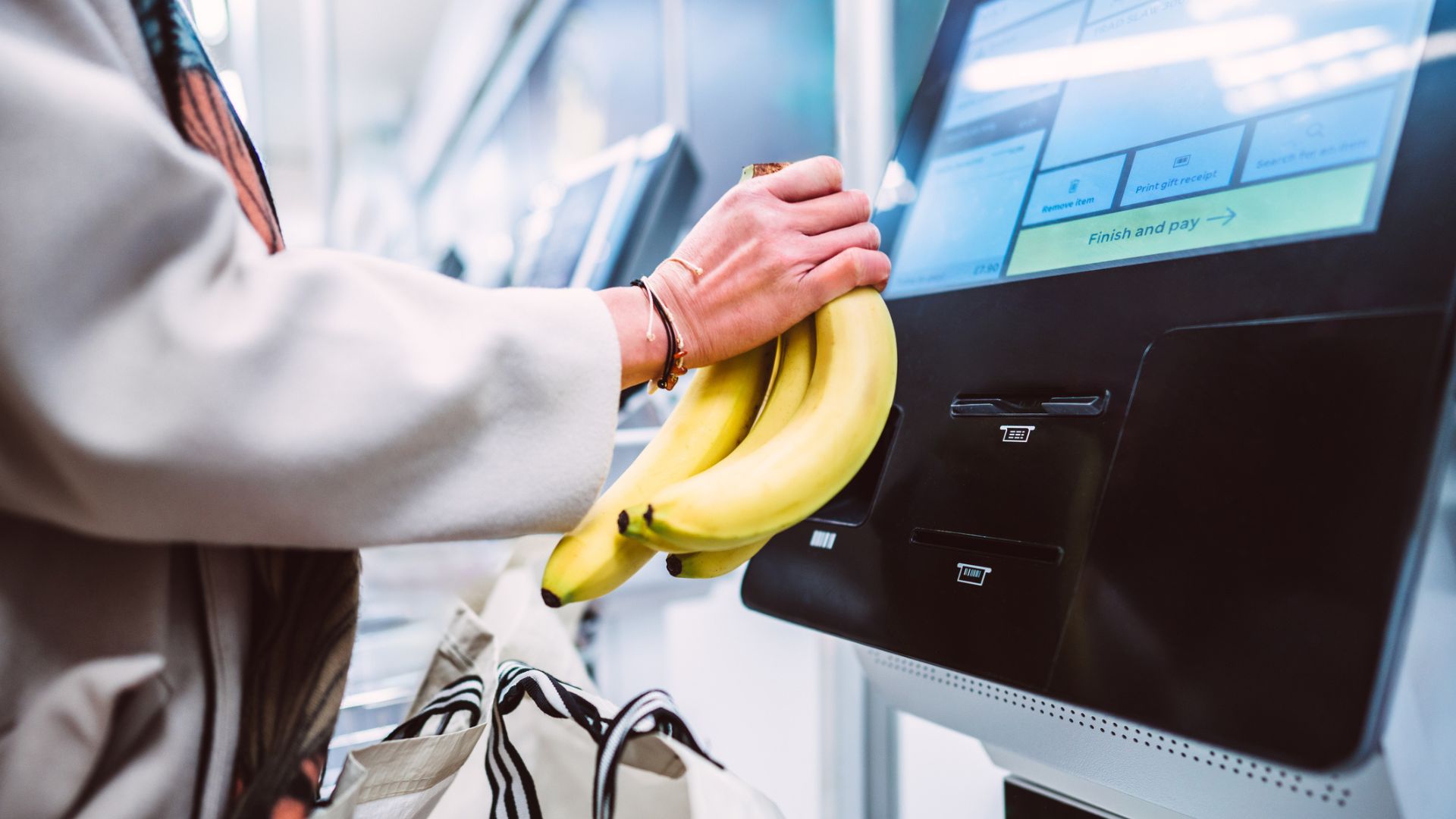The rise of the middle-class shoplifter - why is stealing increasing among affluent woman?
Shop theft and turning a blind eye to stolen goods is on the increase, but it’s not about poverty


Accidentally-on-purpose missed swiping the barcode on your avocado? You might be one of Britain’s SWIPERS – otherwise known as Seemingly Well-Intentioned Patrons Engaged in Regular Shoplifting.
Hiding in plain sight, these people can afford to pay but choose to pinch whatever they can get away with, just because they can. Even if you’ve only bought some olive oil on Facebook Marketplace at a price that feels too good to be true – suggesting that it’s stolen goods – you are complicit to the theft. According to the British Retail Consortium, we’re in the midst of a shoplifting phenomenon, as shop thefts reached an all-time high with over 20 million incidents in 2023/24, costing retailers £2.2 billion.
The cost-of-living crisis has forced some people to take drastic measures to feed their families. Teenagers try their luck, addicts steal to fund addiction, but there’s a surprising subculture of affluent women who do not need to shoplift. They do it for kicks.
Recently, the chairman of M&S, Archie Norman, said the middle classes were partly to blame for the rise in shoplifting. Retailers including John Lewis and the Co-op have described shoplifting as ‘out of control’ and an ‘epidemic’. SWIPERS walk out without paying for items that were not scanned at self-checkouts. The lack of human presence, Norman believes, can sometimes make it too easy to steal.

But why are middle-aged, middle-class women, who never otherwise break any laws, shoplifting? Emmeline Taylor, Professor of criminology at City, University of London, explains, "Why affluent people are compelled to steal fascinates me," she says. "In 2016, I came up with the acronym SWIPERS to describe well-heeled shoplifters. This demographic would never steal in an overt way and they don’t steal enough to warrant arrest.
"They steal by accident, or so they tell themselves – and, if caught, it’s what they tell the security guard too. They appear honest, they might be well dressed and they steal frequently, knowing they can get away with it because people believe them when they play ignorant."
Emmeline Taylor specialises in the psychology of retail crime. She works with the government and police to tackle acquisitive crime, from shoplifting to armed robbery, burglary, mobile phone theft and staff stealing from employers. Emmeline's podcast Retail Crime Uncovered is streaming now.
"Affluent women do not need to shoplift. They do it for kicks"
"Most SWIPERS do actually start stealing by accident, though, when using the self-service checkout," continues Emmeline. "It’s then, having realised that they had got away with it and that it felt good to do so, they start to look for opportunities to recreate the 'mistake'.
Sign up for the woman&home newsletter
Sign up to our free daily email for the latest royal and entertainment news, interesting opinion, expert advice on styling and beauty trends, and no-nonsense guides to the health and wellness questions you want answered.
"There is a body of evidence that suggests wrongdoing can be pleasurable. A rush of adrenaline can be followed by a hit of dopamine as the brain processes the risky behaviour – this could explain why some individuals get addicted to theft.
"But there’s a cohort of women who chance a five-finger discount because they feel that they are above the law, perceive no consequences, and are able to perform the moral gymnastics. SWIPERS are smart; they are alert to their environment, read situations and people well, and have an appetite for calculated risk."
Data from RBR Data Services reveals the number of self-checkouts in UK supermarkets has increased from 53,000 to 80,000 over the past five years, which has exacerbated the problem. But SWIPERS would be horrified to be classed as thieves or petty criminals.

"Typically, they wouldn’t dream of putting items in their pocket," explains Emmeline. "They deny there’s a victim to their crime and think big retailers are the real criminals, hiking prices while we’re struggling. They don’t think they are doing anything wrong. Us criminologists call such reasoning 'techniques of neutralisation'. It’s how otherwise moral individuals convince themselves they are good people, despite shoplifting."
There has also been a rise in the middle classes buying stolen goods on social media sites, turning a blind eye to the obvious fact the goods must have been stolen to be sold at such a low price.
"People are increasingly comfortable convincing themselves olive oil is unjustifiably overpriced in shops but comes at a bargain price from a random seller on Facebook Marketplace," Emmeline explains. Yet the discrepancy – which can be the difference between spending £15 on a good bottle of olive oil in a supermarket, or a few pounds from a seller who just happens to have a few cases of the stuff alongside a TV or two – underlines its murky origins.
Emmeline continues, "How do you know something sold on Facebook is stolen? If it’s from a dubious-sounding account like @kissingkitten1970 (not a real account) and they are selling a pair of second-hand shoes and 12 jars of manuka honey, the honey is probably stolen. If the price seems too good to be true, something is amiss and you’re contributing to the stolen trade by buying from these accounts."
'It feels like a small victory to steal'
For Emma*, 42, from Surrey, the SWIPERS acronym rings true. She says, "I grew up in a big house in the countryside and was privately educated. Having benefited from inherited wealth, I’ve never had to worry about money, but I started stealing from the supermarket in the early 2000s when they first introduced the handheld barcode scanner. It was easy to pretend you’d scanned things you hadn’t, and if you did get called up for a full trolley check, you could feign ignorance.
"I even did it with my mum," Emma admits. "Eventually, our trolley was called back for inspection so many times, we weren’t allowed to use the scanners any more. What we didn’t realise was that if you were called up randomly and your trolley did not correlate with your scanner, you would get automatically called up again the next time, and the next. Of course, our trolley and scanner never matched.
"Over 20 years on and now a mother myself, I still shoplift whenever I can get away with it. If I have scanned all my vegetables and I’ve thrown five avocados in there without scanning, I feel a rush of adrenaline as I walk out.
"It’s not about what I can afford, it’s about what I can get away with," she explains. "It’s easy, thrilling and naughty. Supermarkets make millions in profit and if they are going to charge me £15 for razor blades, it feels like a small victory to steal a punnet of organic blueberries.
"It’s fun to get something for nothing, safe in the knowledge I can smile sweetly and plead ignorance should I ever get pulled aside. I always make the motion of scanning the barcodes, so I can pretend it wasn’t my fault! I’d be mortified to be caught, but that’s why I stick to small items I can explain away. I’m a good person. I give to charity, I volunteer, I help older people cross the street. Shoplifting is my Achilles' heel."
Official moves to counter retail theft
Shoplifting is an offence under the Theft Act 1968, punishable with a maximum sentence of six months' custody if the goods are worth less than £200, but up to seven years if the value is more. "A word of warning," Emmeline states, "shops are wising up. With advanced technology and increasingly serious consequences, it will become more obvious if you are trying to cheat the system – and it’s not going to be worth the thrill for those who get caught."
In April, the last government published its Retail Crime Action Plan, which includes using technology such as facial recognition and intelligent CCTV to detect and identify offenders, banning repeat offenders from entire shopping areas and using electronic tagging to monitor them.
We are also going to see the police take retail crime much more seriously as they establish task forces, guidelines and strategies to combat theft as the Action Plan comes into effect.
"The psychology of shoplifting is fascinating – but I wouldn’t recommend giving it a go!"
"We’re seeing record investment in technology and security as businesses seek to protect their people, products and profits," says Emmeline. "Video analytics and sophisticated AI can detect suspicious behaviour and track items throughout the store to ensure they pass through the point of sale.
"The retail sector is pulling in two directions – a return to more staff and enhanced customer service or more automation of systems. Time will tell how customers, and indeed shoplifters, will respond. The psychology of shoplifting is fascinating – but I wouldn’t recommend giving it a go!"

This article first appeared in the September 2024 issue of woman&home magazine. Subscribe to the magazine for £6 for 6 issues.
Continue reading

Kim has been writing about the incredible lives and adventures of amazing women and brave children (and, occasionally, men too!) for nearly 20 years. A freelance writer who has written for all the best women’s magazines, Kim specialises in covering women’s health, fitness, travel, family, relationships and business themed stories. She counts herself very lucky to have written about so many interesting people over the years.
-
 Kate Middleton’s go-to bag for special occasions is a wedding season essential you’ll bring back time and time again
Kate Middleton’s go-to bag for special occasions is a wedding season essential you’ll bring back time and time againThe Princess of Wales always reaches for the same elegant style of bag for formal events and it works beautifully for weddings.
By Emma Shacklock
-
 Dr Amir Khan reveals the 5 symptoms you should 'never' ignore, no matter how 'vague' they are
Dr Amir Khan reveals the 5 symptoms you should 'never' ignore, no matter how 'vague' they areDr Amir Khan, a GP who often appears on ITV's Lorraine, took to Instagram this week to share the symptoms he'll always take a second look at
By Grace Walsh


